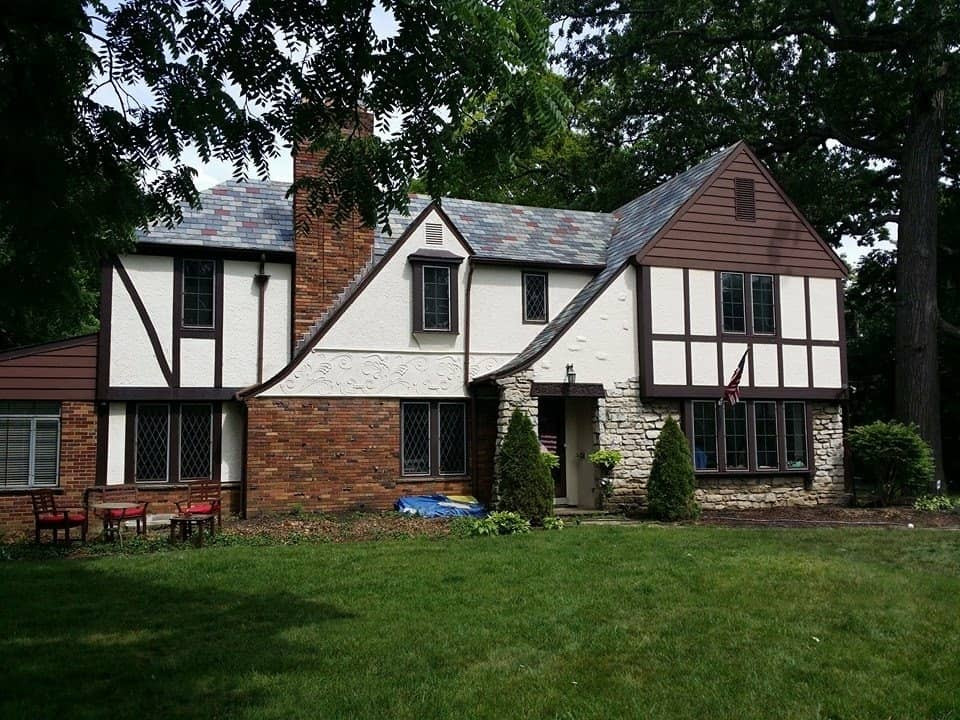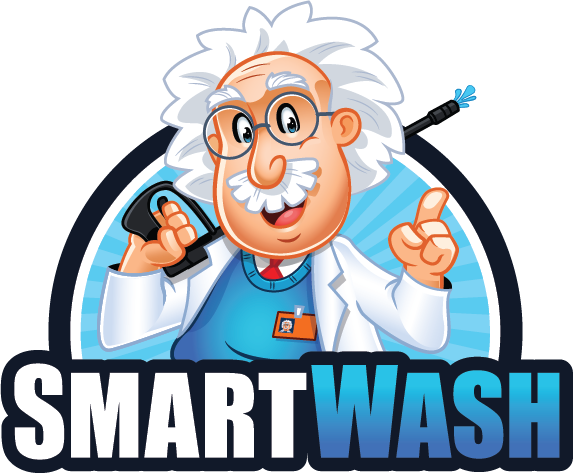
SmartWash's licensed technicians outline the differences between using a heavy-duty power washer and manual soft-washing techniques for sanitation.
What Is Pressure Washing and Who Needs It?
The first pressure pump was an invention from the late 1920s. A Pennsylvania employee accidentally forced steam through a small hose and found that it sanitized his garage floor, which was also a whiskey still. With advancements in pump technology, power washing as a cleaning technique began to gain broader appeal in the mid-'60s and is now a standard in the American maintenance industry.
Today, heavy-duty pressure-washing pumps and nozzles can expel liquids at forces above 3,000 pounds per square inch. They can remove dirt, animal droppings, and vandalism in seconds, making properties look new again.
Technicians use hot-water or cold-water pressure washing to sanitize nearly every residential and commercial exterior area, such as a concrete deck driveway or walkway. Porous surfaces like wood, concrete, and asphalt have billions of near-microscopic holes that moisture and dirt could seep into, making them prone to hosting microbes, mildew, and mold. Pressure washing helps homeowners and business owners eliminate these elements while saving time, money, and cleaning products.
Buying a pressure washer or renting one can be expensive, and DIYers without professional experience can cause thousands of dollars worth of structural damage in a matter of minutes. Power washers can shatter windows, damage paintwork, and strip the patina from antique surfaces. For that reason, technicians from SmartWash recommend working with a licensed and well-reviewed company instead of going the DIY route.
Pressure washing is best for sanitizing outdoor HVAC installations, driveways, brick sidings, and sidewalks.
What Is Soft Washing and Who Needs It?
Soft washing covers numerous cleaning techniques that technicians must master before offering them to the buying public. It involves scrubbing, surface cleaners, lint removal, bleaching, and stain elimination. Unlike pressure washing, where technicians project water onto second-story walls and sidings, soft washing involves erecting ladders and using mops to clean fragile surfaces.
The water pressure in most soft-washing techniques never reaches above 500 pounds per square inch, nearly equivalent to that of a garden hose. Sanitation personnel must rely on the cleaning power of scrubbing pads, sponges, surfactants, detergents, and mold killers to eliminate discoloration and stains.
Soft washing works best for commercial and residential interior sanitation jobs. Exterior fixtures like shingle roofs, outdoor furniture, windows, and skylights could also benefit from this method.
Contact a Professional Crew Today
SmartWash is the leading provider of pressure washing services in Knoxville, TN, and the surrounding areas. Call them today at (865) 205-2958 for a more detailed explanation of these two services.































